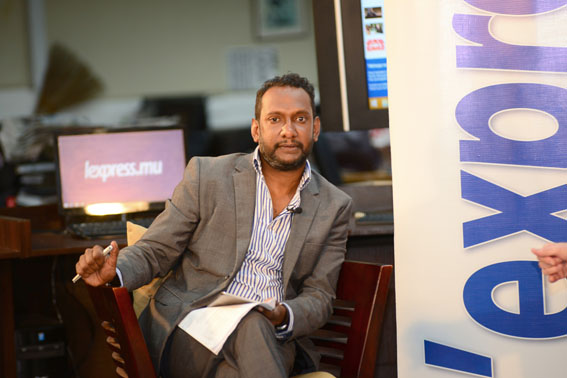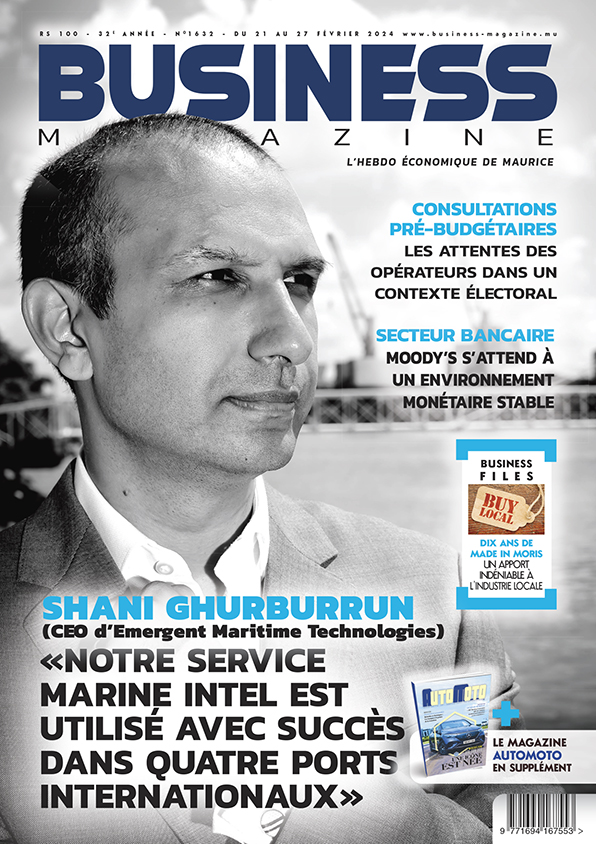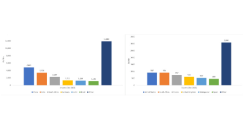Mauritius: A Democratic Model No More
Share

In April 2021, the international community awoke to the sobering reality that Mauritius, once considered a poster child of democracy in Africa, had lost its luster as a democratic reference point. The Democracy Report 2024, released yesterday by the V-Dem Institute housed within the Political Science Department of the University of Gothenburg, Sweden, has squarely placed our country in the spotlight for the wrong reasons, specifically highlighting concerns about freedom of expression and press freedom.
According to the report, “Freedom of expression, including freedom of the media, is what aspiring autocrats attack most often and to the greatest extent. Government censorship of the media is ranked at the dubious top of the list. It has worsened in 45 countries over the past decade. Among the worst offenders in increasing efforts to censor the media are El Salvador, India, and notably Mauritius. This island nation, a long-standing democracy, has seen a significant deterioration in several rights and freedoms in recent years,” as noted by V-Dem’s Democracy Scholars.
These experts underline the importance of tracking Mauritius’s slide into autocratic drift, which continues to descend on the global scale of democracy. “Mauritius is the prime ‘stand-alone’ autocratizer, with the latest autocratization beginning in 2018. Once celebrated as the only liberal democracy in sub-Saharan Africa, Mauritius has recently enacted several regulations that hinder the work of broadcasting companies and journalists, while efforts to censor the media by the government have significantly increased since 2019. This series of actions undermining democracy led to Mauritius being downgraded to electoral autocracy in 2023.”
Globally, the 2024 report indicates that autocratization remains the dominant trend. This year, a systematic look at more detailed regime changes, thanks to international collaboration involving over 4,200 scholars from more than 180 countries, has been a new feature. Their findings include:
– The level of democracy a person enjoys worldwide in 2023 has fallen back to 1985 levels; on a country average, it’s reverted to 1998.
– Since 2009, for nearly 15 consecutive years, the portion of the world’s population living in autocratizing countries has surpassed those in democratizing countries.
– The world is almost evenly divided between 91 democracies and 88 autocracies. However, 71% of the global population—5.7 billion people—live under autocratic regimes, an increase from 48% a decade ago.
– Electoral autocracies house the largest number of people, with 44% of the global population, or 3.5 billion people. In terms of deteriorating freedom of expression and elections, the researchers note:
– Nearly all democracy indicators are worsening in more countries than they are improving compared to a decade ago.
– Freedom of expression remains the most affected democracy indicator, worsening in 35 countries in 2023.
– Clean elections are now the second most deteriorating component, worsening in 23 countries and improving in 12.
– Freedom of association, including civil society, is the third most deteriorating factor, with 20 countries restricting this right while only three are extending it.
Interestingly, 29% of the global population—2.3 billion people—live in liberal and electoral democracies. Israel, for the first time in over 50 years, has been categorized outside of liberal democracies. This year, 60 countries, including Mauritius, are holding national elections. Among these, 31 see their level of democracy degrading, while only three are improving. V-Dem researchers highlight that “elections are ‘critical events’ that can either trigger democratization, enable autocratization, or help stabilize autocratic regimes.”
In sub-Saharan Africa, the vast majority of people (82%) reside in closed and electoral autocracies, such as the Democratic Republic of the Congo, Ethiopia, Somalia, and Zimbabwe, making it the third most autocratic region worldwide. However, 20% live in the four electoral autocracies of the “grey zone,” which includes Benin, Mauritius, Nigeria, and Sierra Leone, most of which are now considered autocracies. Meanwhile, 18% live in electoral democracies like Ghana and South Africa, with 6% in three “grey zone” electoral democracies: Botswana, Kenya, and Zambia. The Seychelles remains the only liberal democracy in the region. Four countries in the region lost their liberal democracy status over the last decade: South Africa in 2013, Mauritius in 2014, Ghana in 2015, and Botswana in 2021. In 2023, four countries in this region also changed regime types. Three of them—Niger, Mauritius, and Sierra Leone—shifted from electoral democracy to electoral autocracy, and one, Burkina Faso, from electoral autocracy to closed autocracy.
Each component of democracy is measured with an index that aggregates up to 20 individual indicators. These individual indicators capture specific aspects of fundamental democratic principles. With V-Dem data, we can delve into these details and provide a more nuanced picture.
Among the 20 indicators that have declined the most in most countries over the past ten years, there is an increasing trend of threats against freedom of expression, free and fair elections, and civil society organizations. The list of indicators also reflects a deterioration of the deliberative space and an erosion of the rule of law, manifested by an “executive aggrandizement.”
Harassment of journalists is on the rise in 36 countries, such as Algeria, Hungary, and Poland. Media bias, or discrimination against opposition parties and candidates in favor of incumbent governments, is deteriorating in 26 countries. Nicaragua, South Africa, and Pakistan are examples of countries where media bias is becoming increasingly common and undermines democratic institutions.
Freedom of expression means an open space not only for the media but also for societies as a whole. Academic and cultural expression is in decline in 39 countries. Russia and the Philippines are among the countries where this forum for “speaking truth to power” is declining the most. The freedom of discussion for women and men is decreasing in 33 and 31 countries, respectively. For women, this freedom has notably decreased in Indonesia, while for men, in Tajikistan and Yemen, to name a few examples.
It’s worth noting that the quality of elections is now deteriorating worldwide. Data shows that 35 countries are regressing on the indicator of free and fair elections. This is a significant increase from the 30 countries in last year’s Democracy Report, and in 2019, the number was only 16. The autonomy of the Election Management Body (EMB) is being attacked by governments in 24 countries—a substantial increase from last year. These figures demonstrate that democratic elections are increasingly being undermined by governments. Bangladesh, Egypt, and Venezuela are examples of countries where the most recent elections held were significantly less free and fair than before.
A Slide in Four Acts…
… if we add 2024. Here is a reminder of the three previous reports on which we sounded the alarm, apparently in vain.
- ACT I. It was in April 2021 that the international opinion became aware of the serious fact that Mauritius, once the model student of Africa, was no longer a reference in terms of democracy. Cutting to the chase, the V-Dem Report by the Swedes, based on empirical data, now classifies Mauritius among the Top 10 “Autocratising Countries” (moving from “Liberal Democracy” to “Electoral Democracy”). In simpler terms, we are perceived by those who study different democratic systems worldwide as a country that only organizes elections every five years, with few if any independent institutions capable of ensuring the critical checks and balances for the day-to-day functioning of a democracy. “Blatant examples are Parliament, disrespect of political opponents, an ineffectual state, non-independent anti-corruption bodies, the function of the central bank, and the list goes on (…) as a matter of fact, Mauritius has registered a 0.23 drop in the last decade—an important swing,” explains one of the Democracy Scholars closely following our country, especially since we had won the top spot in the Mo Ibrahim index in Africa (about fifteen years ago).
- ACT II. The V-Dem report, published in March 2022, reveals that there are 15 countries democratizing and 32 autocratizing. Madagascar, Malawi, Seychelles, and Gambia are the only four countries in sub-Saharan Africa that have experienced democratic gains. Notably, more than double—11 countries in the region—regressed compared to 2011: Benin, Botswana, Burundi, Comoros, Ghana, Ivory Coast, Mali, Mauritius, Mozambique, Tanzania, and Zambia. Therefore, instead of taking into consideration the red card from V-Dem, brandished in April 2021, the regime of Pravind Jugnauth continues to harm the state of our democracy, notably by refusing to provide a Freedom of Information Act, free and private television, and electoral reform to eliminate ethnic criteria that hold us back. Instead, we have a proliferation of cronies filling our ministries, parastatal bodies, public companies, and embassies, all at the taxpayers’ expense, and who applaud Pravind Jugnauth day and night. The democratic advancements of the last 30 years are now annihilated. The number of “liberal democracies” dropped to 34 in 2021, the lowest in 26 years, while autocracies increased from 25 to 30 between 2020 and 2021. Electoral autocracy remains the most widespread regime worldwide – 60 countries. These autocracies now house 70% of the global population, or 5.4 billion people. A record number of 35 states are suffering serious deficits in terms of freedom of expression at the hands of governments. Ten years ago, there were only five. Another worrying trend is the undermining of the autonomy of electoral management bodies by governments appointing “yes men” who flatter leaders. The 2022 V-Dem report (available at https://v-dem.net/media/publications/dr_2022.pdf) is published as the world faces a war in Europe triggered by an autocrat and the return of military coups in Africa. The world is experiencing new peaks of autocratization, and Mauritius is not an exception. The decline of democracy over the last decade remains a phenomenon as Mauritian as it is global. The intensifying wave of autocratization underscores the need for new initiatives to defend democracy beyond traditional political parties.
- ACT III. Last year, in March 2023, the Swedes from V-Dem once again sounded the alarm on the sad case of Mauritius. Our country, sinking deeper, is no longer perceived as a “full democracy.” On the contrary, we are classified among the fastest autocratizers. Mauritius is no longer a benchmark, despite our peaceful coexistence and a previously ascending GDP. But beneath the surface, the country, fragmented by occult forces, was cracking. Indeed, we could still tick the right boxes without actually addressing the raised issues – in other words, the questions and the (limited) response options were written in such a way that it was easy to miss the point. For example, for question 2 of the Electoral Process and Pluralism section of a survey that read, “Are elections for the national legislature and head of government fair?”, there were only three choices, “no major irregularities” – 1 point; or “no significant irregularities” – 0.5 points; or “major irregularities (intimidation, fraud)” – 0 points. There was a total of 60 questions – all with limited and strictly quantitative response options. And that’s the main problem: we’ve rested on our laurels, believing we were safe from a turnaround. Today, as we celebrate our 56th Independence Day, facing the reflection V-Dem, Reporters Without Borders, and… the International Institute for Democracy and Electoral Assistance (IDEA, an international organization comprising 34 states, including Mauritius), reflects back at us, we have no choice but to take our destiny into our hands if we want to escape from the Top 10 Autocratizers group. There are not 10,000 solutions: we need to unite all democrats in the country to overcome the “mafia” (to use Pravind Jugnauth’s term) that autocratically controls our institutions. A renewal or a “re-foundation” of politics – governance, in particular, is needed. The attempt to trample on the separation of powers by the police commissioner is another bad signal. The independence of the DPP, already threatened by the sinisterly remembered Prosecution Commission Bill (killed in the bud by Xavier-Luc Duval), must be maintained beyond the political fray. The Chief Justice has set the right tone and put things into perspective. The Supreme Court remains a bulwark against autocracy, waiting for other institutions to regain their independence. However, the creation of the FCC risks jeopardizing the DPP’s office.

















